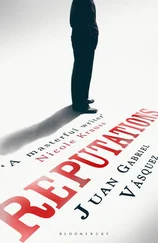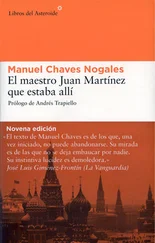Oliveira didn’t say anything.
“In Iceland it wouldn’t be like this. Sometimes I wonder what life would be like on Grímsey Island. It must be different. The sun shining all the time, and you could be outside, doing things. Not thinking. Talking to people, and in daylight, what more could you ask for? Thinking is horrible, all those ghosts, what you’ve done, what you haven’t done. Góda nótt , Oliveira, that’s good night in Icelandic. But on Grímsey Island they must not even have the chance to say it. Isn’t that a perfect life?”
IV
Oliveira drove thinking about the strange way the town had been gradually surrounding them, arranging well-chosen elements on both sides of the road. First a vineyard, then a couple of brick houses, then traffic lights — one green and bright for Paris, Amiens, or Rouen, then another, white and smaller, which didn’t direct them toward L’Isle-Adam but confirmed they were in it — and finally, constructed block by block around the van as it advanced along a decidedly urban street. Only one window had a light in it: it was the shop window of a bakery that spilled a yellow light across the sidewalk and part of the road. A man was sweeping the sidewalk with a straw broom; several dry leaves and an Orangina can ended up in the gutter. The letters were projected onto the pavement backward. “Eiregnaluob,” said Oliveira. “Boulangerie.” He was starting to get sleepy; he felt pins and needles in his hands, found it hard to focus. He looked in the rearview mirror, and saw tiny paths of blood in his eyes like a route map.
“Eiregnaluob,” he said.
“What did you say?” she reacted.
“Here we are,” Oliveira said.
He parked right in front of the house. At this hour nobody was going to complain: not a single bicycle was visible. As he got out of the van, he felt in his nostrils and tear ducts the cutting cold of the early morning. She seemed more awake; it was as if she’d gotten a second wind. But, in spite of her alert step and clear diction, she was worn-out, no longer the woman whose skillful hands had operated on a horse on the sawdust floor of the Beauvais livery.
While Oliveira was looking for the key to the back doors of the van, she said:
“If you want, you can come in.”
Oliveira waited for her to say something more: a romantic proposal, a declared project. Something to flee from.
“It’s not something I usually do,” she went on. “Well, I never do. If you’re not able to take it the right way, forget it and be on your way.”
“Take it the right way? What do you mean?”
“As a way of saying thank you.”
“But there’s nothing… but I haven’t done anything any other person wouldn’t have done.”
“That any other person hasn’t done. But it doesn’t matter to you. How I spend my nights is something that doesn’t matter to you. What I decide to do—”
“It would give me great pleasure,” said Oliveira.
“What would?”
“To see inside your life.”
“It’s not my life, it’s my house,” said Agatha. “And it’s a mess.”
She took her instrument case, and Oliveira followed her inside the house. As soon as he closed the door, he found a living room on the right and a dark wooden handrail going up and a narrow hallway that went all the way to the back, where he could see a wall of sky-blue tiles and the black iron burners of a gas stove. On the widest wall of the front room, above the main radiator, hung a faded map of the world.
“There’s no coffee,” said Agatha.
“I didn’t feel like any,” Oliveira lied.
Oliveira was going to say: Actually, I’m not going to stay very long. But the heating was so pleasant, the possibility of lying down and closing his eyes for a few minutes so tempting, that the words didn’t take shape in his mouth. He could just as easily sleep in a rest area, somewhere along the highway; but here he wouldn’t have to worry about thieves or noisy drunks, much less overly sociable creatures trying to look for company, something he, in particular, would be unable to provide. He discovered Agatha’s house smelled like her; or, vice versa, that all of her, her underarms, the nape of her neck, her belly button, had been impregnated with this smell, a blend of mothballs and pressed flowers. That, perhaps, gave him the sensation of already knowing or finding himself back in a place he was used to. They went up to Agatha’s bedroom, Oliveira’s eyes fixed on her hips. He noticed he was desiring her again. Or maybe he was confusing desire with the sudden instinct of belonging.
“I would, however, like to take a shower,” said Oliveira. “I’m falling asleep.”
“Well, we’re in luck, then. That’s the only thing I can offer you, hot water.”
“You’re not so bad,” he said, a yawn hindering his words. “You’ve had a couple of naps.”
She didn’t hear him.
“Look, this wardrobe is a hundred and eighty years old. It belonged to my great-grandfather’s uncle, or something like that. A deacon, in any case.”
Agatha’s room was not that of a woman who spends much time at home: apart from the wardrobe, a reporter’s tape recorder, sitting on top of the television set, was the only proof of human presence. There was nothing to suggest the inhabitant’s tastes or opinions. The television was unplugged. Two black cables hung down like lianas and one of them touched the floor. The screen still had the factory adhesive on it, in spite of being an old model. The adhesive was covered in dust. Solitary people like him put the television in their bedroom; lonely, sad people like Agatha soon forgot about the television, left it to rot like fruit.
“This wardrobe is the first Christian of the house,” said Agatha.
When Oliveira didn’t make any comment, she turned her back on him, as if she were going to inform on someone and ashamed of her duplicity.
“It’s all I’ve got, Oliveira. This shitty religion is all I’ve got, this God is all that keeps me company, and not you or anyone else can understand that.”
“Maybe so. But tonight I’ve been here. And He hasn’t.”
“You’re leaving.”
“And He’s staying, is He? Where is He, then? Show Him to me. I’ve always wanted to meet Him.”
“It’s all I’ve got,” Agatha repeated. “And you’re leaving, Oliveira. Really, it’s as if you’d already gone.”
“Well, it would be best not to get any hopes up. I was never planning to stay.”
“Without pity, please. Have some respect.”
“I didn’t come here to save you, Agatha.”
She closed her eyes. It seemed as though she would rather not have heard the last sentence, but, at the same time, she seemed accustomed to grappling with it.
“It hurts me to think of you leaving. Is that bad? I prefer to convince myself you’ll stay until daybreak. I don’t suppose that’s a sin, carrying on believing things even when you know they’re lies.”
He didn’t dare try to comfort her, much less contradict her. He was afraid Agatha would start to cry, although it was obvious her declaration wasn’t intended to provoke sympathy or pity. Maybe, he thought, it wasn’t even directed at him, and just a part of this woman’s eternal struggle against herself. Nevertheless, he felt cruel. Then he understood he was content, because now he would have liked to erase those words that had threatened the fragile delicacy of the moment.
“Forgive me,” he said. “I’m not used to talking about things like this. I don’t know how to say what I think without trying to win an argument. It’s terrible, my father always scolded me for it.”
Agatha took a pair of unpadded headphones out of the wardrobe. “I wanted to show you something,” she said. She plugged the headphones into the tape recorder and put them on Oliveira like a princess’s tiara.
Читать дальше










